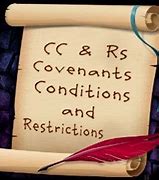Below is a review of the posts (on Facebook, LinkedIn, and Twitter) from the past week. You can check out the full posts by clicking on the links.

In the post on Sunday 11/20/2022 we saw a 9-year-old case alleging racial ethnic discrimination by NASA can finally proceed. A discrimination lawsuit brought by Black and Asian American employees at NASA that has been pending for nearly a decade may finally move forward after an administrative judge at the EEOC said it may proceed as a class action case. The judge certified two groups of employees—Black NASA employees and Asian American NASA employees, both within the pay grades of GS-13 and GS-15—as eligible to become classes in the lawsuit. What the suit concerns is in the post. The case was first filed in 2013, with a class certification application submitted in 2014, but it was all in limbo until 2019. One reason it may have languished that long is noted in the post. Plaintiffs hired experts to analyze the subject data and they found evidence of (alleged) racial bias in performance ratings. The post gives more details. NASA, like other federal agencies, uses annual performance appraisals to determine who gets step increases, performance bonuses and promotions. One difference here is that unlike in private sector discrimination cases in federal courts, EEOC claimants’ ability to acquire testimony and documents is severely curtailed until an administrative judge certifies the class. Here the judge allowed a limited early discovery period; what was and was not covered is noted in the post. If there is no appeal by NASA, broader discovery will begin.
TAKEAWAY: Anti-discrimination laws apply to all employers, even the government; know the law and follow it.

The post on Monday 11/21/2022 told us that more former Bristol Myers employees sue over COVID-19 vaccination brouhaha. Requests for religious exemptions are far from done. Four former Bristol Myers Squibb employees who were fired for refusing to be vaccinated against COVID-19 have filed a lawsuit against the drug giant. They allege that BMS violated Title VII which requires companies to engage employees in a dialogue to resolve issues when religious beliefs conflict with company policies. Another suit is already pending and its allegations are noted in the post. Further, in August, another former employee, Oksana Chornomaz, also sued BMS and an HR employee claiming she was unlawfully terminated due to her religious beliefs. And what is the policy at issue? See the post. BMS says that it has granted some requests for religious exemption. The four most recent plaintiffs are identified in the post along with their former positions. In August 2021 BMS sent notices to employees requiring them to indicate whether they had been vaccinated or planned to receive it and that they had to be vaccinated by Nov. 1. How have other large employers fared with suits over religious exemptions from a COVID-19 vaccine mandate? One that resolved with a very large settlement is noted in the post.
TAKEAWAY: Know your rights and obligations relative to vaccine mandates and accommodation. Consult an employment lawyer.

The post on Tuesday 11/22/2022 showed us a medical firm sued for denying religious accommodation to Sikh employee. The EEOC filed a nationwide lawsuit in response to multiple acts of discriminatory behavior. Recently a medical firm fired a Sikh employee after denying him religious accommodation. The entities against whom the suit was filed are listed in the post. The lawsuit alleges wrongful termination of Ravinder Singh, a Sikh paramedic, after he was denied personal protective equipment (PPE) to accommodate his Sikh articles of faith. What did he ask for? See the post. One of the defendant entities denied his sincere need for an accommodation and insisted that Singh use an N95 mask as opposed to any other kind of PPE. The Sikh Coalition first filed a discrimina-tion complaint on Singh’s behalf with the EEOC; how that proceeded is in the post. Singh just wanted to use his training and skills to help others.
TAKEAWAY: If you can accommodate, do it. But talk to an employment lawyer first to make sure it is done properly and will not prejudice any future actions.

The post on Wednesday 11/23/2022 asked: Can HOAs restrict political signs? Know the law in PA for the spring primary election. We all know that life in a condominium or homeowners’ association involves certain restrictions that apply to everyone. But can those restrictions involve political signs? Maybe. The post is actually a VID.
TAKEAWAY: Consult a community association lawyer about the intersection between the First Amendment and condo/HOA restrictions.

In the posts on Thursday 11/24/2022, here, here, and here, the Thanksgiving holiday brought good wishes from our family to yours. It’s good to be thankful – and this author believes that we all have something to be thankful for.
TAKEAWAY: Sometimes you just need to step away and enjoy family and friends – and be thankful you can do that.

The post on Friday 11/25/2022 reminded us owners are bound by declaration of covenants even when not aware they exist. Assume renters occasionally violate HOA rules. Assume further that the HOA sends the owner a letter threatening to impose fines if the violations are not corrected. Keep assuming that the owner makes sure the tenants cure the violations and that the owner never signed any HOA documents nor paid any HOA transfer fee. When it comes to PA condo and homeowner associations, the declaration (of covenants, conditions and restrictions) is recorded in the public land records. The timing of recording (as noted in the post) and what the Declaration provides are key. There are legal requirements to be followed and documents to be provided to a buyer, but what if the buyer assets they have no knowledge of the Declaration? See the post.
TAKEAWAY: Before buying a house in a condo or homeowners association, know who has what rights and obligations; get advice from a community association lawyer.

Finally, in the post yesterday 11/26/2022, we learned why a court ruled for a man who solicited prostitutes at work (yes, it really happened). And yes, an employer can fire someone who solicits prostitutes while on the clock, so why did the Third Circuit Court of Appeals (the federal appellate court with jurisdiction over cases from PA) rule in favor of a man who (allegedly) did just that? Retaliation. The court ruled for Joseph Canada as against the company, Samuel Grossi and Sons, Inc., on the basis noted in the post. So let’s look at the background and learn from it. Canada made 4 complaints to Grossi and Sons that are listed in the post. Then he went on vacation. While he was gone, the company did the three things noted in the post and then fired Canada. What did the Court say about that? See the post. Note that the case did not determine if Grossi engaged in discrimination or violated the ADA or FMLA; instead it established that Canada had enough evidence (at this stage of the suit) to support his claims that terminating him for inappropriate phone behavior was simply a pretext for retaliation. Keep in mind that retaliation stands alone, even if the underlying claim is not found to be valid (or even exists). What does that mean relative to Grossi’s actions? See the post. Here while Canada shouldn’t have solicited prostitutes while on the clock, Grossi would not have known if they hadn’t tried to retaliate against him.
TAKEAWAY: Don’t stick your head in the sand; if a complaint is made, investigate it. And don’t take adverse action against the person who lodged the complaint – that is retaliation.

 York, Pennsylvania 17403
York, Pennsylvania 17403